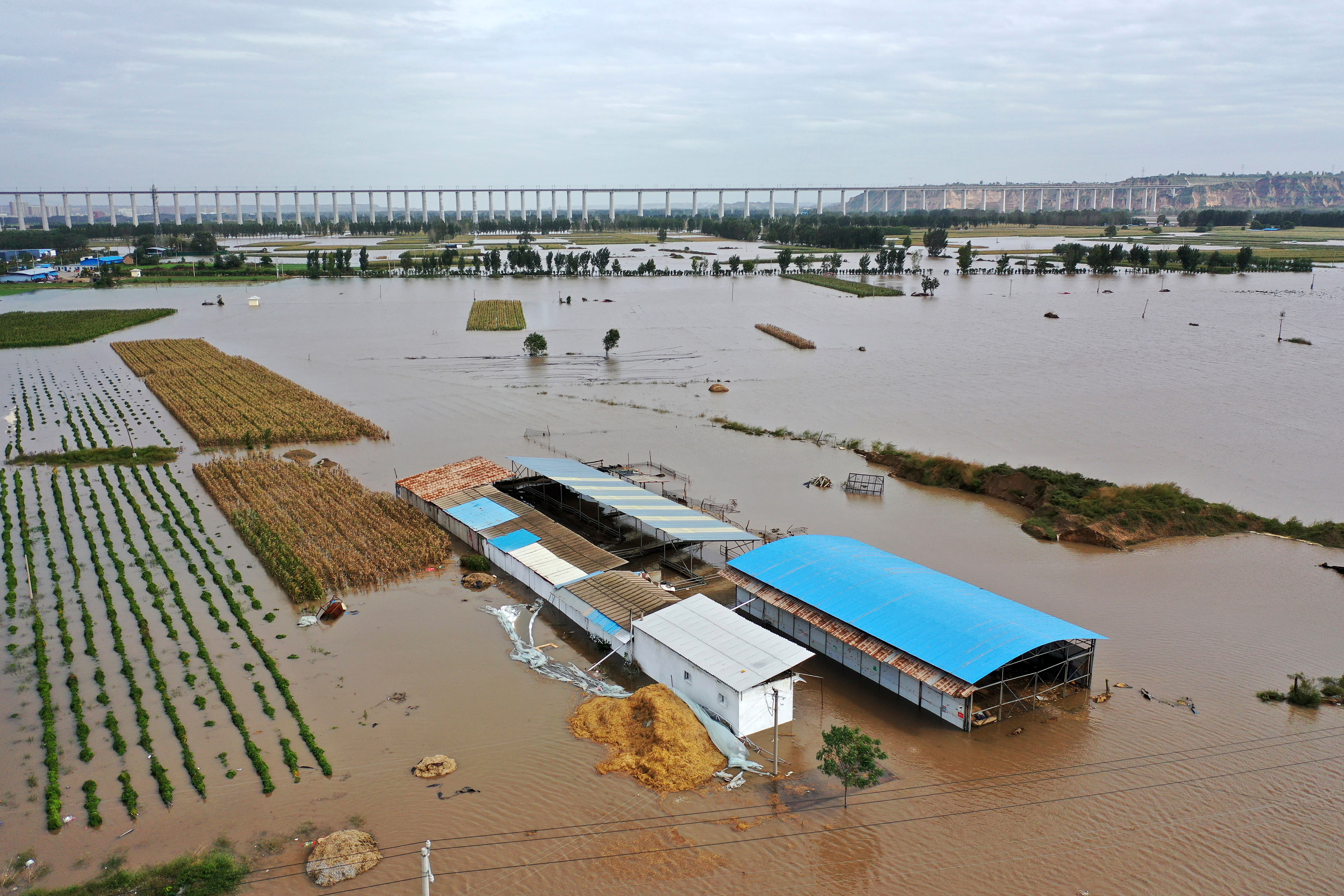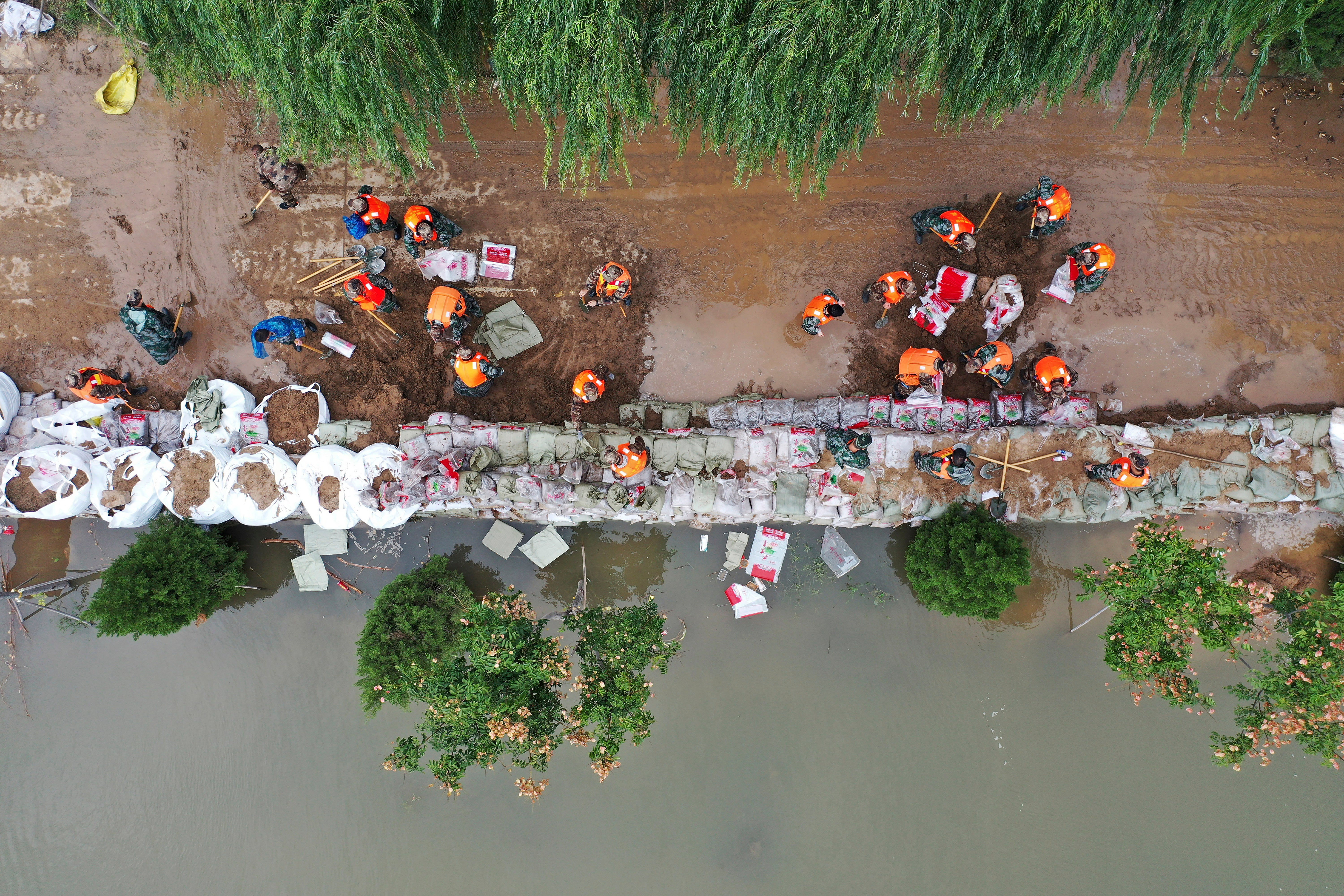China flooding: Bus swept away and millions displaced by deadly deluge
Operations have been suspended at 60 coal mines in Shanxi, a major coal-producing area

Your support helps us to tell the story
From reproductive rights to climate change to Big Tech, The Independent is on the ground when the story is developing. Whether it's investigating the financials of Elon Musk's pro-Trump PAC or producing our latest documentary, 'The A Word', which shines a light on the American women fighting for reproductive rights, we know how important it is to parse out the facts from the messaging.
At such a critical moment in US history, we need reporters on the ground. Your donation allows us to keep sending journalists to speak to both sides of the story.
The Independent is trusted by Americans across the entire political spectrum. And unlike many other quality news outlets, we choose not to lock Americans out of our reporting and analysis with paywalls. We believe quality journalism should be available to everyone, paid for by those who can afford it.
Your support makes all the difference.A bus fell into a gushing river near the city of Shijiazhuang in northern China on Monday, leaving three people dead and several missing, as a deadly deluge of rain affected millions of people in China.
Thirty-seven of the 51 passengers on the bus have been rescued but 11 are missing, reported CGTN. The bus plummeted into a gushing river outside the city of Shijiazhuang, about 265km southwest of Beijing. Videos on social media showed people had climbed on top of the bus to try to survive the deluge.
Torrential rains have wreaked havoc in China’s Hebei and Shanxi provinces since last week. More than 1.76 million people in Shanxi have been adversely affected by the rainfall, which has also triggered landslides and floods. The rainfall levels have reached almost four times the usual monthly average.
More than 120,000 people were evacuated in Shanxi province after 17,000 homes were destroyed and 190,000 hectares of crops were damaged by floods, the official Xinhua News Agency said on Sunday.
This comes less than three months after the disastrous rains in Henan province, which left more than 300 people dead. The record-breaking rains in July led to overflowing reservoirs, landslides, breaching of riverbanks and were caused flooding in the public transport system.

Aerial footage showed villages in Shanxi inundated and railway bridges submerged in waters. A section of a historic wall in the Unesco-listed ancient town of Pingyao was also damaged by the rainfall. This has led to concerns that a number of such historic monuments in the city are in danger of collapsing. At least 166 tourist sites have been shuttered.
Details of total casualties remain unknown.
Amid a global coal crisis, operations have been suspended at 60 coal mines in Shanxi, which is a major coal-producing area. China is also suffering a crippling electricity crisis, caused by a shortage of coal and rise in prices.
Last week, between Wednesday night and Thursday morning, Shanxi received an average of 119.5mm rainfall in 12 hours. The region usually records a monthly average of 31.3mm.
Additional reporting by agencies
Join our commenting forum
Join thought-provoking conversations, follow other Independent readers and see their replies
Comments